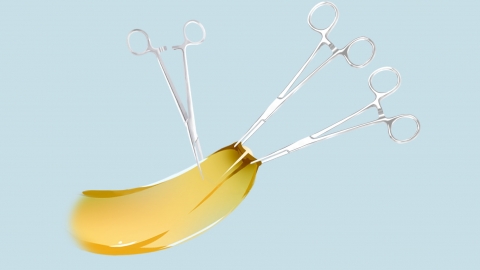What causes swelling after circumcision, and what should be done about it?
Generally, the main causes of edema after circumcision include normal postoperative tissue reaction, poor local blood circulation, wound infection, oozing blood and hematoma at the wound site, and injury to the penile frenulum. If discomfort occurs, it is recommended to seek timely medical treatment at a正规 hospital. Detailed analysis is as follows:
1. Normal Postoperative Tissue Reaction
Surgery causes trauma to local tissues, triggering an inflammatory response in the body, leading to exudation of tissue fluid and mild edema. This usually gradually subsides within 3–5 days after surgery. Keep the wound clean and dry, avoid friction or irritation, wear loose and breathable underwear, and elevate the scrotum appropriately during bed rest to promote absorption of edema.

2. Poor Local Blood Circulation
Blood vessels in the circumcised area are severed during surgery, and new circulation has not yet been established. Impaired blood return leads to persistent edema, often accompanied by mild distension and pain. Avoid prolonged standing or sitting, reduce local pressure, and perform gentle local massage as appropriate to improve blood circulation and accelerate resolution of edema.
3. Wound Infection
If postoperative care is inadequate, bacteria may invade the wound and cause infection. Inflammatory stimulation results in local congestion and swelling, accompanied by redness, pain, and discharge. Under medical guidance, antibiotics such as cefuroxime axetil tablets, levofloxacin tablets, or azithromycin dispersible tablets may be taken. Disinfect the wound with iodophor 2–3 times daily and keep the wound dry, avoiding contact with water.
4. Wound Oozing and Hematoma
Inadequate hemostasis during surgery or premature physical activity afterward may lead to recurrent bleeding. Accumulated blood forms a hematoma, compressing surrounding tissues and worsening edema, often with noticeable swelling and pain. Prompt medical attention is required. Small hematomas can be managed with local cold compresses and compression bandaging; larger hematomas may require surgical incision and drainage.
5. Frenulum Injury
Excessive resection or improper suturing of the penile frenulum during surgery can impair local blood flow and tissue healing, resulting in significant edema at the frenulum site and delayed recovery. Mild injuries can be treated with warm compresses and topical application of polysulfated glycosaminoglycan cream to promote healing. Severe injuries may require surgical repair of the frenulum. After surgery, avoid strenuous activities and maintain wound cleanliness.
In daily life, it is important to avoid strenuous exercise and sexual activity after surgery; keep the wound clean and change dressings regularly; eat a light diet and avoid spicy or irritating foods; seek immediate medical attention if swelling worsens, pain increases, or there is discharge from the wound.







